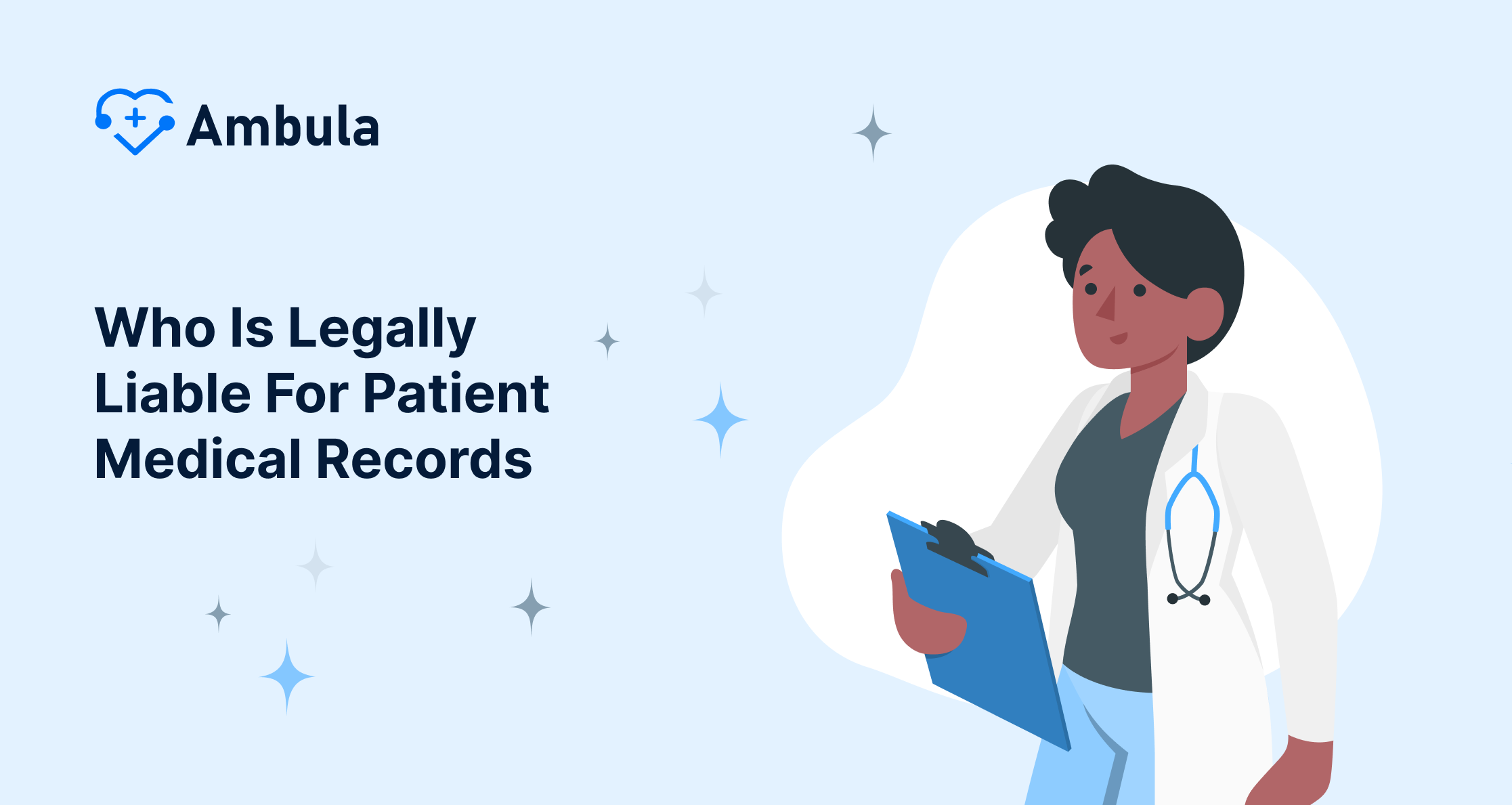
So get this: there’s this super important piece of the healthcare puzzle we don’t chat about much. Most people don’t give it much airtime, but it’s got a major influence on how we feel about our healthcare vibes. Drumroll, please… we’re diving into health care accounting. I know, it doesn’t sound thrilling, but hey, the best stuff often requires a bit of effort. So, let’s strap in and get ready to dig into what some might call the dark horse of the medical realm.
As we’re on this mission to amp up healthcare, we always make a big deal out of the fancy gadgets in med tech, cheer on the tireless medical teams, and push hard to tweak health laws. What we miss though, is how healthcare accounting is the quiet hero doing its thing outta sight to make sure the whole show doesn’t fall apart.
Handling a company’s inside money stuff to haggling with those insurance folks medical accounting has a big sway on healthcare costs. It decides who gets what kind of fix-ups and shapes how folks feel about their whole doctor visit thing. Man, those tiny bits matter so we’re gonna jump straight into it!
Understanding Healthcare Accounting
First things first, what is accounting for healthcare? Simply put, it refers to recording, analyzing, and managing financial information in healthcare. It’s as if healthcare accounting is the heart, pumping essential financial lifeblood to ensure the steady beat of the healthcare system.
The system’s complexity – with a continual interchange of resources between insurance companies, healthcare providers, and patients – makes healthcare accounting not a procedure for the faint-hearted. Is healthcare accounting hard? Accurate records are vital to ensure smooth funding flows and maintain a balanced balance sheet in any healthcare institution, whether you’re talking about a pharmacy or a multi-specialty hospital.
Without efficient accounting for healthcare organizations, we could see catastrophic scenarios unfold. Imagine receiving medical bills with outrageous expenses due to a financial miscalculation. Or a hospital department that has run out of equipment funds because of inadequate budgeting. Hence, accounting for healthcare services is more of a guardian than an evil necessity, ensuring the financial well-being of the healthcare world.
Healthcare Accounting: The Key to Great Patient Care
Now, let’s move on to the juicier part – the direct impact of accounting for healthcare industry on patient care. When these number-crunchers get their financial statements right, our experience as patients can be vastly improved. So, how does it work? Proper accounting in healthcare industry ensures that the hospital uses its financial resources optimally, thereby leading to knock-on effects on the quality of patient care.
Accurate accounting in medical field helps medical facilities deploy their resources more strategically. Let’s say a healthcare accountant enters a new payment model into the system or decides if a department genuinely requires a high-tech scanner or if its funds can be better utilized elsewhere. Right distribution ensures that funds are used efficiently and not wasted on unnecessary items.
Isn’t it something that your hospital stay or your GP visit was made better by someone sitting in a small office dealing with numbers? By ensuring the hospital’s efficient running, healthcare industry accounting indirectly but substantially improves patient care and boosts patient satisfaction.
Pricing, You, and Healthcare Accounting
Our first impulse when seeing a medical bill might be heart palpitations. Worry not! Accounting for healthcare professionals can help explain why we pay those sums at our healthcare facilities. It falls upon the accountants’ shoulders to break down where these numbers come from, including hospital overheads, physician fees, drug costs, and more. Consequently, proficient healthcare accounting practices ensure fairness in your healthcare expenses.
Uncertainty about medical costs can induce stress in patients. Thankfully, professionals with a healthcare accounting degree work diligently to refine pricing procedures. Their prime objective is to reach a pricing equilibrium where the hospital can sustain and patients can afford care, leading to enhanced patient satisfaction.
So, the next time you receive a medical bill, remember: behind those numbers are tireless medical accountants trying to ensure you’re only paying your fair share. Their role in maintaining a fair pricing system is invaluable to both the healthcare organizations and their clients – us.
The Insurance Tango
Healthcare accounting and insurance is a duo that performs a sophisticated tango. Navigating through insurance claims and coverage is a task that requires precision and tact, much like dancing. The healthcare accounts team has to balance between the patient’s coverage plan, hospital charges, and the insurance company’s policies.
By dealing with insurance companies effectively, financial accounting in healthcare can ease the payment process, making it more manageable for patients. This delicate dance helps in minimizing patients’ financial burdens and maximizing reimbursement.
In essence, hospital accounting professionals are unseen intermediaries between insurance companies and patients. This management can aid patients, allowing them to focus more on recovery and less on the complexity of insurance claims.
Transparency and Trust in Numbers
Accurate accounting fosters financial transparency, leading to building a foundation of trust between patients and healthcare institutions. If there’s one thing patient-centered care needs, it’s trust, and ensuring we pay only what we owe is paramount in achieving that. Proper cash flow management and depreciation tracking are key.
Little will deter a patient quicker than feeling overcharged. Yet, behind the scenes, healthcare accountants work to create an atmosphere of trust through financial transparency. Their job ensures no erroneous charges are found on your bill by carefully managing accounts receivable and accounts payable, encouraging increased patient satisfaction.
The next time you glance at your bill and sense relief at noticing no extra charges, remember the financial experts in the background. Their commitment to transparency through accurate billing and use of accounting software creates a potent bond of trust with patients.
Healthcare Accounting: The Heart of Quality Care
Healthcare institutions with excellent financial health, as evidenced by positive profit and loss statements, correlate with superior care. Good accounting in the healthcare sector maps the resource allocation path, leading to better facilities, staffing, and quality of care.
Elaborating on this, a hospital with robust financial health, backed by proficient financial reporting and HIPAA compliance, will manage resources successfully. This fiscal prudence could translate into modern medical equipment, better infrastructure, and sufficient staffing, all of which cumulate into a heightened standard of patient care.
So, a diligent accountant working on maintaining financial equilibrium through financial analysis indirectly helps enhance the quality of care received by patients. It’s an unusual but fascinating financial healthcare loop that comes in full circle to benefit us.
The Accessibility Factor
Efficient healthcare accounting may increase medical service accessibility. When managed effectively, funds reflect efficient services with fewer procedural hurdles. The patient-centered care philosophy imbibes quick and easy accessibility into its core and proficient healthcare accounting aids. Proper medical coding is crucial for this.
For instance, successful financial transactions management in a healthcare institution can lead to shorter waiting times, quicker procedure approval processes, or even fewer administrative steps for admission or discharge. Integration with electronic medical records (EMR) systems can streamline this further.
Better-managed funds through sound healthcare finance practices can ease access to different levels of medical care, from general check-ups to specialized treatments, increasing overall patient satisfaction.
Attracting the Right Funding
Effective healthcare accounting practices act as a magnet, attracting more financial support or funding. Stable financial records reflect good healthcare administration and healthcare management, instilling confidence in potential donors or investors.
When a hospital’s accounts show robust financial health and steady revenue from patient payments, it’s attractive to donors or government entities who fund healthcare organizations. Consequently, these extra funds can trickle down to improve the facilities accessible to patients.
Increased funding could mean an overhaul of old systems, newer technology, hiring more healthcare professionals, and ultimately, elevating the level of patient-centered care a healthcare institution can provide.
Conclusion: The Unseen Impact of Healthcare Accounting
So, we’ve come across the finish line in our educational marathon regarding healthcare accounting. It’s hard to imagine that those invisible figures behind the scenes can profoundly impact patient care, but it’s true!
The next time you’re talking about patient-centric care or expressing relief at smooth insurance coverage, remember the role of healthcare accounting. These unsung heroes working quietly behind the scenes make a tangible difference in our healthcare journeys.
In their unique way, these healthcare accountants influence patient satisfaction and shape the healthcare industry’s financial landscape we navigate. They might not be visible bedside, but they make an immense difference in our health journeys!




